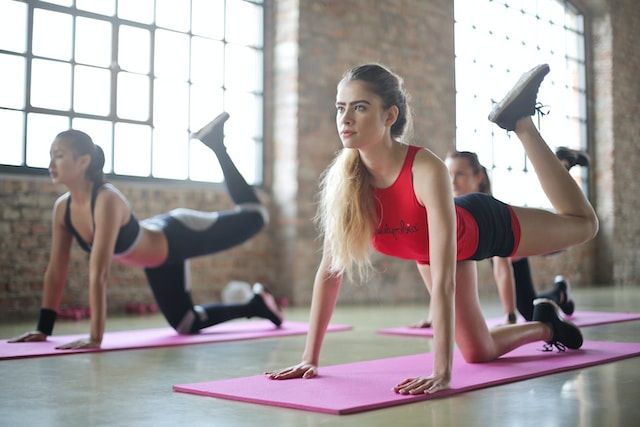What are the physical and mental health benefits of regular exercise?

1. Strengthen the cardiovascular system:
Regular exercise can strengthen the heart muscle, improve the function of the cardiovascular system, and reduce the risk of heart disease and stroke. Aerobic exercise such as climbing, running, swimming, and cycling can increase heart rate and breathing and enhance cardiovascular fitness.
2. Improves muscle and bone health:
Regular strength training and repetitive movements can strengthen muscles and bones, improve posture and balance, and reduce the risk of osteoporosis and fractures.

3. Weight control:
Exercise helps burn calories and maintain a healthy weight. The more intense your exercise, the more calories you burn. Cardio and high-intensity interval training can increase your metabolic rate and help reduce body fat.
4. Boosts immunity:
Moderate regular exercise can boost immune system function and reduce the risk of infection and disease.
Boosts mental health: Regular exercise releases chemicals in the body like endorphins and dopamine, which boost mood and reduce anxiety and depression. Exercise can also help improve sleep quality and improve cognition.
5. Enhances attention and focus:
Exercise helps improve brain function, improving focus, focus and learning.
6. Improve digestive system function:
Moderate exercise can promote digestion and reduce constipation and gastrointestinal problems.

7. Revitalize Your Sex Life
Regular physical activity can boost your energy levels and boost your confidence in your appearance, which may boost your sex life. Regular physical activity may enhance sexual arousal in women. Men who exercise regularly are less likely to suffer from erectile dysfunction.
8. Provide social opportunities: Participating in team sports or fitness activities can provide social opportunities to form connections and friendships with others. Exercise and physical activity can be pleasurable. They give you the chance to relax, enjoy the outdoors, or engage in activities that make you happy. Physical activity can also help you connect with family or friends in a fun, social setting.
9. Improve sleep:
Regular exercise can help you fall asleep faster, sleep better, and sleep more deeply. However, don’t exercise right before bed, or you may be too excited to fall asleep.
In conclusion, regular exercise can improve physical health, reduce disease risk, improve mental health, and increase overall quality of life. The important thing is to choose a sport that suits your interests and abilities, and to keep exercising regularly.
Exercise Guide:
1. Aerobic exercise.
Get at least 150 minutes of moderate-intensity aerobic activity or 75 minutes of vigorous-intensity aerobic activity each week. It is recommended to spread this amount of exercise over the course of the week, with at least 300 minutes of exercise per week. But even small amounts of physical activity can help. Moderate-intensity aerobic exercise includes brisk walking, biking, swimming and lawn mowing. Vigorous aerobic activity includes activities such as running, heavy yard work, and aerobic dancing.
2. Strength training.
Do strength training for all major muscle groups at least twice a week. Do only one set of each exercise with a weight and resistance level that fatigues your muscles after 12 to 15 repetitions. Strength training includes using free weights, your own body weight, resistance bands, or a resistance slurry in water, as well as doing activities like rock climbing.

